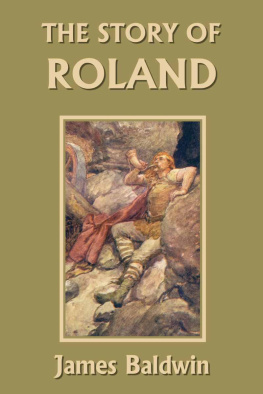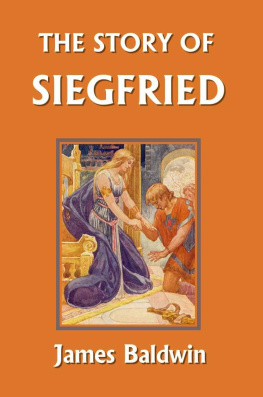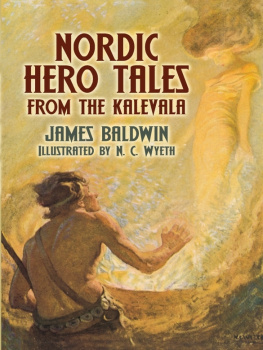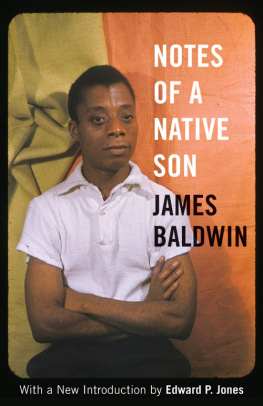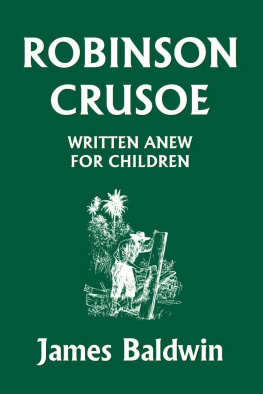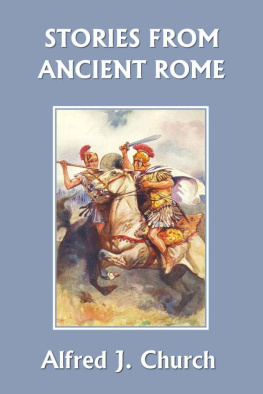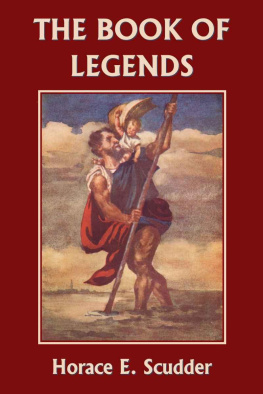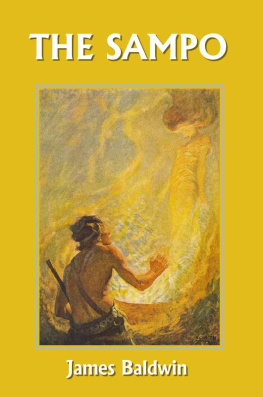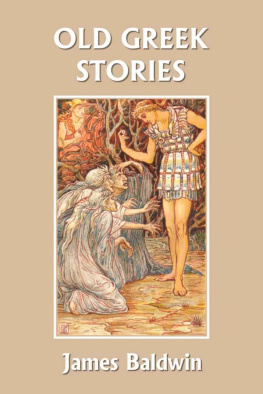Thirty More Famous Stories Retold
by
James Baldwin
Yesterday's Classics
Chapel Hill, North Carolina
Cover and Arrangement 2010 Yesterday's Classics, LLC
All rights reserved. No part of this book may be reproduced or retransmitted in any form or by any means without the written permission of the publisher.
This edition, first published in 2010 by Yesterday's Classics, an imprint of Yesterday's Classics, LLC, is an unabridged republication of the work originally published by American Book Company in 1905. This title is available in a print edition (ISBN 978-1-59915-008-6).
Yesterday's Classics, LLC
PO Box 3418
Chapel Hill, NC 27515
Yesterday's Classics
Yesterday's Classics republishes classic books for children from the golden age of children's literature, the era from 1880 to 1920. Many of our titles are offered in high-quality paperback editions, with text cast in modern easy-to-read type for today's readers. The illustrations from the original volumes are included except in those few cases where the quality of the original images is too low to make their reproduction feasible. Unless specified otherwise, color illustrations in the original volumes are rendered in black and white in our print editions.
To the Boys and Girls
It is now more than a year since you read my "Fifty Famous Stories." Those stories, as you will remember, are quite short and easy. Before you had finished your second year at school you could read every one of them without stopping to study the meaning of the words. Many thousands of children have read those fifty stories, and then they have asked for more; and this is my excuse for the present volume.
You are older now, and you have learned many things which you did not know when we first became acquainted. You are able to read almost everything. And so, in telling you "Thirty More Famous Stories," I have chosen more difficult subjects and have not been so careful to select the shortest and easiest words. Still, you will not find this book hard to read, neither do I think it will prove to be less interesting than the earlier volume.
Nearly all the stories are true, and there are not more than three or four that might not have happened. In every one there is something worth learning and remembering.
Contents
Columbus and the Egg
C HRISTOPHER C OLUMBUS discovered America on the 12th of October, 1492. He had spent eighteen years in planning for that wonderful first voyage which he made across the Atlantic Ocean. The thoughts and hopes of the best part of his life had been given to it. He had talked and argued with sailors and scholars and princes and kings, saying, "I know that, by sailing west across the great ocean, one may at last reach lands that have never been visited by Europeans." But he had been laughed at as a foolish dreamer, and few people had any faith in his projects.
At last, however, the king and queen of Spain gave him ships with which to make the trial voyage. He crossed the ocean and discovered strange lands, inhabited by a people unlike any that had been known before. He believed that these lands were a part of India.
When he returned home with the news of his discovery there was great rejoicing, and he was hailed as the hero who had given a new world to Spain. Crowds of people lined the streets through which he passed, and all were anxious to do him honor. The king and queen welcomed him to their palace and listened with pleasure to the story of his voyage. Never had so great respect been shown to any common man.
But there were some who were jealous of the discoverer, and as ready to find fault as others were to praise. "Who is this Columbus?" they asked, "and what has he done? Is he not a pauper pilot from Italy? And could not any other seaman sail across the ocean just as he has done?"
One day Columbus was at a dinner which a Spanish gentleman had given in his honor, and several of these persons were present. They were proud, conceited fellows, and they very soon began to try to make Columbus uncomfortable.
"You have discovered strange lands beyond the sea," they said. "But what of that? We do not see why there should be so much said about it. Anybody can sail across the ocean; and anybody can coast along the islands on the other side, just as you have done. It is the simplest thing in the world."
Columbus made no answer; but after a while he took an egg from a dish and said to the company, "Who among you, gentlemen, can make this egg stand on end?"
One by one those at the table tried the experiment. When the egg had gone entirely around and none had succeeded, all said that it could not be done.
Then Columbus took the egg and struck its small end gently upon the table so as to break the shell a little. After that there was no trouble in making it stand upright.
"Gentlemen," said he, "what is easier than to do this which you said was impossible? It is the simplest thing in the world. Anybody can do it after he has been shown how ."
"Upon a Peak in Darien"
First Story
A FTER Columbus had shown the way to America a great many Spaniards came over. They came to Haiti and Cuba and Porto Rico and the smaller islands near them. Like Columbus they believed that these lands were near the eastern coast of Asia. They believed that they were a part of India, and therefore spoke of them as the Indies. Afterwards, when their mistake became known, these islands were named the West Indies and the true islands of India were called the East Indies.
Far to the southwest of Cuba, Columbus had discovered a long coast which he named Darien. It was the neck of land which we call the Isthmus of Panama, but he supposed that it was a part of the mainland of Asia. A few years later some Spanish sailors visited Darien and carried word back to Haiti that there was gold there. Now at that time a Spaniard would go to the end of the world for gold, and therefore this news caused great excitement among the young men who had come across the ocean for the purpose of adventure.
"To Darien! to Darien!" was the cry; and soon a company was formed and two ships were made ready to sail to that land of promise.
The voyage was a delightful one from the start. The sea was calm, the wind was fair, and the vessels sped swiftly on their way. Soon the pleasant shores and green mountains of Haiti were lost to view. Only little rocky islets could be seen. The ship was heading straight into the Caribbean Sea.
Then, what was the surprise of the crew of the larger ship to hear strange rappings in the hold! A voice also was heard, like that of some one calling for help. What could it mean? The sailors could not see any one, and yet the sounds could not be mistaken.
"Please help me out!" The voice seemed to come from among some barrels in which provisions were stored.
"A man is in one of the barrels," said the captain.
Soon the barrel was found and opened. Out of it leaped a young man, richly clad in a velvet cloak and a silk doublet embroidered with gold. He was a handsome fellow. His eyes were keen and bright, and his face had a determined look, like that of one who is used to having his own way about things. At his side hung a long sword, and in his belt was a dagger.
Several of the men knew him; and so he did not need to say that his name was Vasco Nunez de Balboa. They knew that he was a dashing adventurer, always doing and daring, and always borrowing and spending money. But why was he in the barrel?


